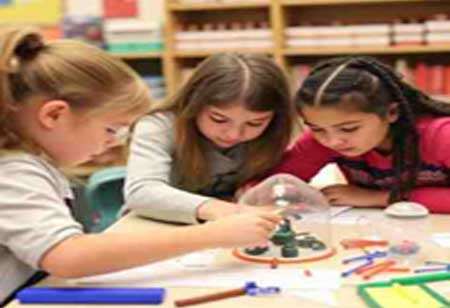THANK YOU FOR SUBSCRIBING
Be first to read the latest tech news, Industry Leader's Insights, and CIO interviews of medium and large enterprises exclusively from Education Technology Insights
How Technology can Advance Student Social Skills and Engagement
Student self-management includes goal-setting, stress management, and the ability to control one's behaviors and decisions. Students with social awareness can empathize with others, view situations from multiple angles, and develop compassion

By
Education Technology Insights | Tuesday, April 30, 2024
Stay ahead of the industry with exclusive feature stories on the top companies, expert insights and the latest news delivered straight to your inbox. Subscribe today.
Student self-management includes goal-setting, stress management, and the ability to control one's behaviors and decisions. Students with social awareness can empathize with others, view situations from multiple angles, and develop compassion for others.
Fremont, CA: Today's educational institutions are tasked with not only imparting academic knowledge to students but also aiding them in developing social-emotional learning (SEL) skills. This includes fostering a positive self-image, enhancing metacognitive abilities, refining interpersonal communication, and cultivating empathy. While these skills may not be quantifiable through standardized assessments, they play a crucial role in shaping well-adjusted and successful individuals.
It's challenging to integrate SEL in the classroom. Ensuring that kids' social and emotional needs are being met can be challenging for teachers with a lot on their plate. However, in addition to relieving teachers of part of their workload, technology can assist pupils in learning these abilities.
Problem-solving, interpersonal, and self-management skills are all part of social and emotional education, or SEL, which is a collection of abilities centered on how a student connects with the world and its individuals. These abilities all immediately translate into becoming a successful adult. Some refer to these abilities as "soft skills," distinct from "hard skills," or more conventional abilities like reading, writing, and math.
The components of the CASEL framework consist of:
Student self-management includes goal-setting, stress management, and the ability to control one's behaviors and decisions.Students with social awareness can empathize with others, view situations from multiple angles, and develop compassion for others. They are taught interpersonal skills and relationship management, enabling them to succeed in their personal and academic lives. Trained of making responsible decisions they can be considered for a wide range of information and viewpoints.
Why does social-emotional learning receive so much attention?
Most schools have made a significant effort to include SEL in the classroom, and they have been focusing more on SEL. It's no secret that SEL is receiving a lot of attention; studies have shown that it significantly improves student performance by lowering bullying and dropout rates and raising test scores on students.
Students are facing increased stress and anxiety due to COVID-19, high-stakes testing, and the effects of social media. They are also having difficulty with social-emotional learning. This is why there is a focus on SEL at this time.







